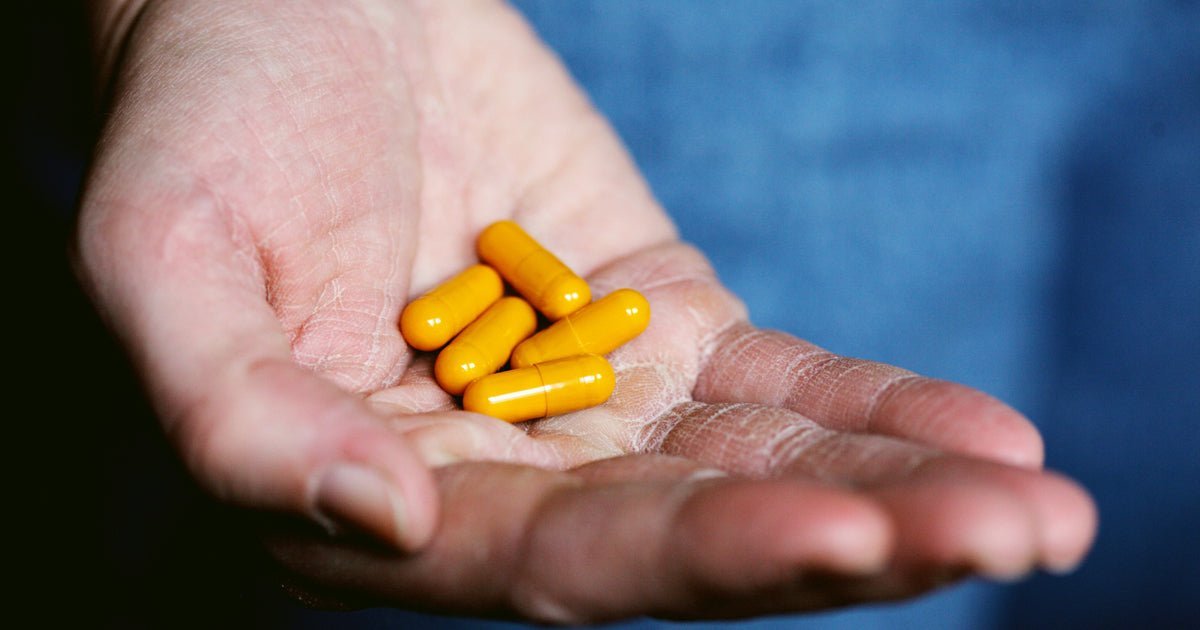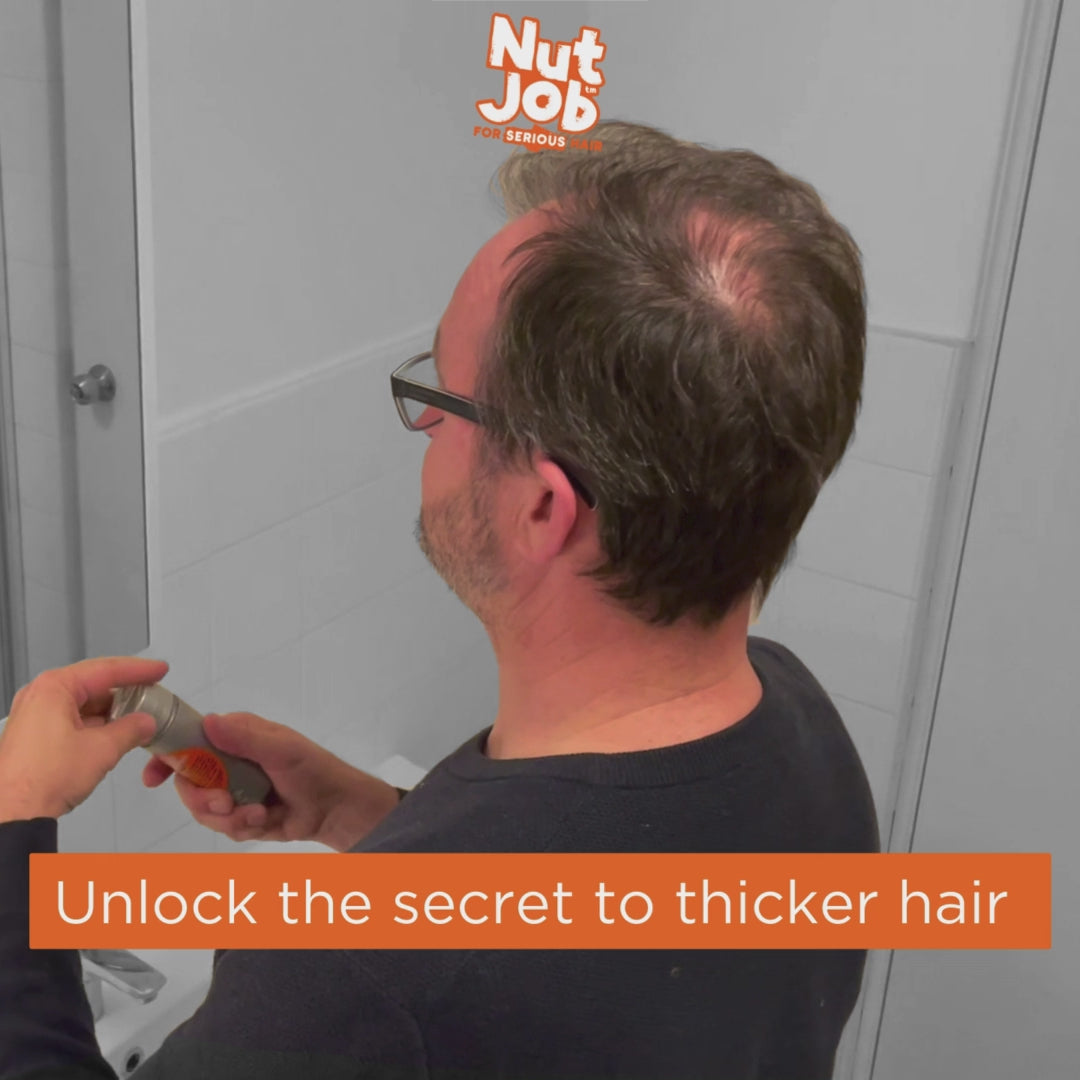
Which vitamin deficiency causes hair loss
The most common vitamin deficiency causing hair loss, particularly in women, but also in men, is a lack of iron. Once iron stores are depleted, the body is no longer able to prioritise hair. We have covered some of the most common vitamin deficiencies causing hair loss.
Iron is crucial for maintaining healthy hair follicles, as it plays a vital role in delivering oxygen to the cells that support hair growth. Insufficient iron levels can lead to weakened hair strands and increased shedding. This is especially important for women, who may experience lower iron levels due to menstrual cycles, pregnancy, or dietary restrictions.
Vitamin D is another essential nutrient linked to hair health. A deficiency in vitamin D can disrupt the hair growth cycle and is associated with several hair loss conditions, such as androgenetic alopecia and telogen effluvium. Ensuring adequate vitamin D intake, whether through sunlight exposure or supplements, is important for promoting healthy hair follicles and encouraging hair growth.
The first thing you need to do is consult with your healthcare professional who can provide valuable insights into individual nutrient needs and help in developing a balanced dietary plan to support hair growth and overall well-being. To determine if your hair loss is caused by a vitamin deficiency, you can follow these steps:
- Look for symptoms: Take note of your hair loss pattern and any accompanying symptoms. Hair loss due to vitamin deficiencies may be gradual or sudden, and you may also experience other signs of deficiency, such as fatigue, brittle hair, or changes in skin and nails.
- Take a good look at your diet: Nutritional deficiency can contribute to a lack of the essential vitamins and minerals which are known to keep your hair healthy. Check your diet to see if you are consuming adequate amounts of key vitamins known to affect hair health, such as:
- Vitamin D
- Vitamin E
- Vitamin B12
- Biotin
- Iron
- Consult a Doctor: Schedule an appointment with a healthcare professional, such as a dermatologist or a primary care physician. Discuss your hair loss concerns and any other symptoms you may have.
- Blood tests: Ask your doctor for blood tests to check your levels of specific vitamins and minerals. Common tests may include:
- A complete blood count (CBC)
- Serum vitamin D levels
- Vitamin B12 levels
- Ferritin (to assess iron stores)
- Review Medical History: Discuss any medical conditions or medications that might contribute to your hair loss. Certain conditions (like thyroid issues or autoimmune diseases) and medications can also lead to hair loss.
- Consider Other Factors: Remember that hair loss can be multifactorial. Stress, hormonal changes, genetics, and overall health can also play significant roles in hair loss.
- Follow Recommendations: If a vitamin deficiency is identified, follow your doctor's recommendations for dietary changes, supplements, or other treatments to address the deficiency.
- Monitor Progress: After starting any treatment or dietary changes, keep track of your hair growth and any improvement in your symptoms over time. Follow up with your doctor as needed.
Once you have had your blood test and you have your results, you will find out if any of these deficiencies apply to you and if so, what effect it is having on your hair growth.
Vitamin D is crucial for the growth and maintenance of hair follicles. Here are several reasons why a deficiency in this vitamin may lead to hair loss:
- Follicle Stimulation: Vitamin D plays a vital role in stimulating hair follicles. It helps initiate the hair growth cycle, and when levels of vitamin D are low, this stimulation may be reduced, leading to hair thinning or loss.
- Cell Growth Regulation: Vitamin D is involved in the regulation of cellular growth and differentiation. It helps in the proliferation of keratinocytes (cells that make up the outer layer of the skin, including the scalp) and is essential for maintaining healthy hair follicles.
- Impact on Hair Density: Vitamin D deficiency can lead to a decrease in hair density, meaning that not only can hair fall out, but new hair growth can also be impaired. This can result in patches of baldness or overall thinning hair.
- Immune Function: A deficiency in vitamin D can impair the immune system. In some cases, this may lead to autoimmune conditions such as alopecia areata, where the immune system wrongly attacks hair follicles, resulting in hair loss.
- Connection to Other Nutrients: Low vitamin D levels can also correlate with deficiencies in other nutrients important for hair health, such as vitamin B12 and iron. This interconnection means that a deficiency in one nutrient can exacerbate the effects of deficiencies in others, further contributing to hair loss.
- Hair Growth Cycle Disruption: Vitamin D is involved in the hair growth cycle, particularly in transitioning hair follicles from the resting phase (telogen) to the growth phase (anagen). Insufficient vitamin D can disrupt this cycle, leading to increased hair shedding and reduced overall hair density.
- Role in Overall Health: Vitamin D is essential for many bodily functions beyond hair health, including immune function, bone health, and inflammation regulation. An overall deficiency can impact general well-being and contribute to stress, which may also exacerbate hair loss.
- Sunlight Exposure and Absorption: Since sunlight is a primary source of vitamin D, individuals who do not get sufficient sun exposure may be at a higher risk for deficiency. This is particularly true in areas with limited sunlight during certain seasons, or for individuals who spend most of their time indoors.
- Connection to Hair Loss Conditions: Research has shown that low levels of vitamin D are associated with specific hair loss conditions, such as alopecia areata, an autoimmune disorder that causes patchy hair loss, and androgenetic alopecia, also known as male or female pattern baldness. In these cases, vitamin D may help in the regulation of the immune response and the maintenance of hair follicle health. This suggests that adequate levels of vitamin D are important for preventing these types of hair loss.
Given these factors, maintaining sufficient vitamin D levels through sunlight exposure, diet, or supplements can be crucial for promoting healthy hair growth and preventing hair loss. If there are concerns about hair loss, it is advisable to consult a healthcare provider for proper assessment and guidance.
An iron deficiency causes hair loss primarily due to its critical role in transporting oxygen to cells throughout the body, including hair follicles. Here’s a more detailed explanation of how this process works:
- Oxygen Transport: Iron is a key component of hemoglobin, the protein in red blood cells responsible for carrying oxygen from the lungs to various tissues and organs. Hair follicles require an adequate oxygen supply for healthy growth and maintenance.
- Disrupted Hair Growth Cycle: When there is insufficient iron in the body, the reduced oxygen supply to the hair follicles can disrupt the hair growth cycle. This can lead to a condition known as telogen effluvium, where hair prematurely enters the resting (telogen) phase and falls out.
- Impact on Hair Follicle Health: Iron deficiency anemia can lead to a weaker hair structure and impaired hair follicle function. Without enough iron, the follicles may not be able to produce new hair effectively, resulting in thinning and increased hair shedding.
- Symptoms of Iron Deficiency Anemia: Besides hair loss, iron deficiency anemia can present other symptoms such as fatigue, weakness, and pale skin, indicating a broader impact on overall health.
- Prevalence in Specific Populations: Iron deficiency anemia is particularly common in women, especially those with heavy menstrual periods, which can exacerbate the risk of hair loss related to iron deficiency.
In summary, an iron deficiency affects the body's ability to deliver oxygen to hair follicles, which is essential for maintaining healthy hair growth. Addressing the deficiency can often lead to a reversal of hair loss symptoms.
Before considering dietary supplements for female pattern hair loss, it's essential to understand the following:
- Nutritional Deficiencies: Vitamins and minerals such as biotin, vitamin D, vitamin B12, and iron are important for hair health. If you have a confirmed deficiency in these nutrients, supplementation may be beneficial. However, it's crucial to have a healthcare professional evaluate your nutrient levels before starting any supplements.
- Risks of Excessive Supplementation: Taking vitamin and mineral supplements without a confirmed deficiency may lead to adverse effects. For instance, excess selenium and vitamin A have been linked to hair loss. Therefore, it's generally advisable to obtain these nutrients from a balanced diet rather than supplements.
- Holistic Approach: A well-rounded diet rich in essential nutrients—such as those found in meat, fish, legumes, dark leafy greens, nuts, seeds, and whole grains—may help support hair health. Focusing on a nutrient-dense diet is often a better strategy than relying solely on supplements.
In summary, unless you have a documented deficiency, no, please do not take supplements just in case. It is far more beneficial to focus on a balanced diet rich in the necessary vitamins and minerals rather than taking dietary supplements for female pattern hair loss. Based on the provided background information, a lack of zinc is linked to hair loss, including female pattern hair loss.
A note on Vitamin C: Vitamin C is not specifically mentioned in the context of female pattern hair loss or thinning hair in the provided information. While vitamin C is essential for overall health and can aid in the absorption of iron and support collagen production (important for hair structure), its direct link to female pattern hair loss is not established in the context of the information provided. Therefore, while a zinc deficiency is acknowledged in relation to hair loss, vitamin C's role is not clearly defined in this context.
These are the main vitamins required for optimal hair health:
- Biotin (Vitamin B7): Supports healthy hair follicles and is commonly associated with hair growth. But in reality, a biotin deficiency is extremely rare, in fact, highly unlikely. So do not take biotin as a supplement unless you are one of the very rare individuals with a biotin deficiency diagnosed by a health care provider.
- Vitamin D supplements: Plays a role in the hair growth cycle and can help prevent hair loss.
- Vitamin E: Acts as an antioxidant that can help reduce oxidative stress on the scalp and promote healthy hair.
- Vitamin A: Essential for cell growth, it also helps in maintaining healthy scalp and hair.
- Vitamin B12: Important for red blood cell formation and overall hair growth; deficiency may lead to hair loss.
- Iron : Necessary for proper oxygen transport in the blood, which is vital for hair growth. But do not take iron supplements without first having a blood test, since too much iron is also very dangerous.
- Zinc: Zinc plays a fundamental role in many bodily functions, including immune system maintenance, which supports hair growth. A zinc deficiency can lead to hair loss, and supplementation is often prescribed to promote new hair growth. However, it's important to note that zinc supplementation may only be effective in the short term, so addressing deficiencies early is key.
Consider incorporating foods rich in nutrients that support hair health, such as:
- Fatty fish (rich in omega-3 fatty acids)
- Nuts (like Brazil nuts for selenium and walnuts for omega-3s)
- Eggs (a source of protein and biotin)
- Fortified foods and dairy products (to boost vitamin D levels)
Consulting with a healthcare provider is advisable before starting any new vitamin regimen, especially to determine the right dosage and ensure it fits your specific health needs.











